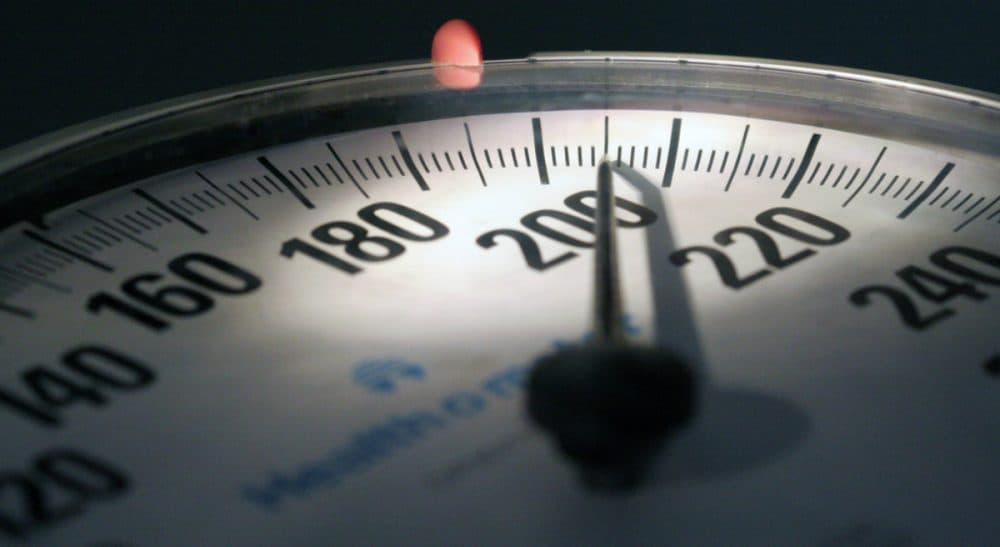Advertisement
More Than Half Of Today's American Kids Will Be Obese By Age 35, Harvard Study Projects

A new Harvard T.H. Chan School of Public Health study projects that if current tends continue, more than 57 percent of today's youth will be obese at age 35.
Currently, about one in five schoolchildren is considered obese.
Some recent findings have been encouraging: Obesity rates have dropped a bit in children under 5, and stabilized from ages 6 to 11.
But obesity has kept rising in teens and adults. Put early weight gain together with later weight gain, and the future is looking heavy — strikingly heavy — for today's kids, the study in the New England Journal of Medicine finds. It used new simulation models to predict long-term weight gain.
I spoke with the paper's lead author, Zachary Ward, a Ph.D. candidate in health policy at Harvard. Our conversation, lightly edited:
How would you sum up what you found in this paper?
We found that obesity is going to be a big problem for most of today's children if current trends continue. We found that over half of today's children — about 57 percent — are projected to have obesity when they turn 35. And we found that obesity or excess weight during childhood is predictive of adult obesity, even at a very young age.
Didn't we know that already?
Yes, we did. But we didn't have good data to really predict over the long term; the average follow-up study in the U.S. is less than 10 years.
How did you reach your findings?
We pulled together five different nationally representative data sets that have repeated measures of the same people over time. These are people at different ages — some are children, some are adults — and we developed a new method to simulate synthetic trajectories over a longer period of time by sequentially matching together observed segments of trajectories.
We also had to adjust for trends in weight gain over time. We use those estimates to adjust our simulated trajectories so that we can make more accurate predictions for today's children going into the future.
I think my reaction will be a common one: I thought things were getting better! I thought we'd stabilized child obesity, and yet you found a picture that looks quite dire.
We may have stabilized obesity in some age groups — although some recent data shows it's still continuing to increase among young children — but even if we also ran a scenario where we assumed that these trends in weight gain don't continue — that they remain flat — we still find that about 50 percent of children in that scenario will have obesity at the age of 35. So it seems that children have already gained enough weight during childhood to put them on a trajectory that's hard to change as they grow older.
And that trajectory is almost always to become heavier as you get older?
Right. People typically gain more weight as they get older. And we found that about half of the projected level of obesity occurs during childhood — by the age of 20 — and then the other half of this 57 percent occurs in young adulthood, ages 20 to 35.
Is this study a 'first'?
It's the first time we used new methods to make better predictions based on data that we have. It's not a first in terms of some of the insights. We've known that excess weight in childhood is predictive of adult obesity. But this study is able to make more accurate predictions for today's generation of children, to really characterize their risks more precisely.
So what is to be done?
This study is part of a larger project called the Childhood Obesity Intervention Cost Effectiveness Study. We have modeled out over 40 different interventions in different sectors — community interventions, school-based interventions, clinical interventions. And we have identified a number of cost-effective preventive interventions, but they'll need to be more widely implemented if we're going to make a dent in this epidemic.
Reports I've seen suggest that various interventions just slightly chip away at the problem — a couple of percentage points here and there, at least in the first years...
Right. I think we're really going to need to think carefully about how we can package interventions across different sectors, and really sustain efforts across the life course as children age.
Because the big health harms tend to come later, at 35 and older?
Right, there are some health effects for children with severe obesity, but for the most part the health risks to them start happening later in life.
